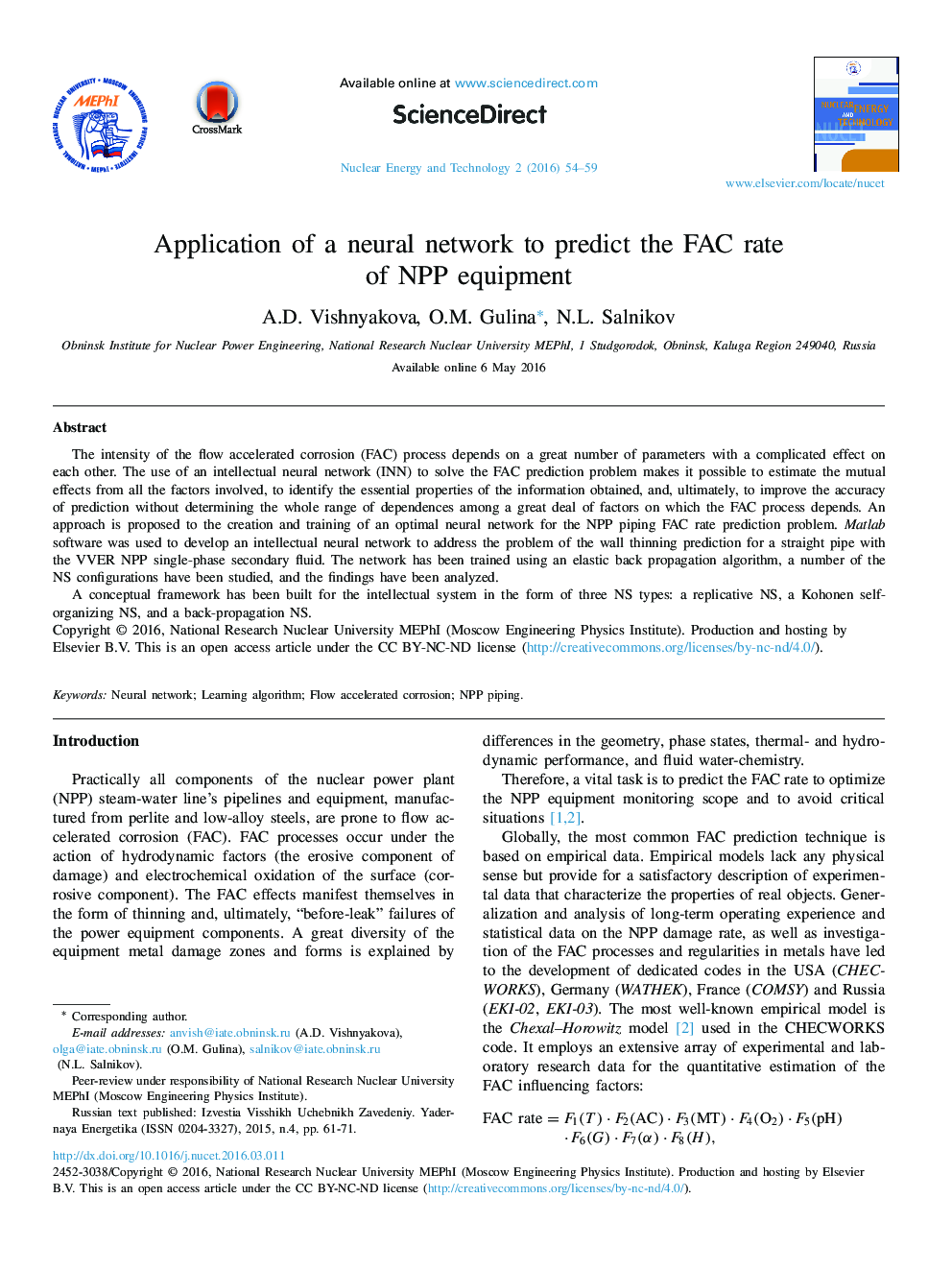| Article ID | Journal | Published Year | Pages | File Type |
|---|---|---|---|---|
| 366560 | Nuclear Energy and Technology | 2016 | 6 Pages |
The intensity of the flow accelerated corrosion (FAC) process depends on a great number of parameters with a complicated effect on each other. The use of an intellectual neural network (INN) to solve the FAC prediction problem makes it possible to estimate the mutual effects from all the factors involved, to identify the essential properties of the information obtained, and, ultimately, to improve the accuracy of prediction without determining the whole range of dependences among a great deal of factors on which the FAC process depends. An approach is proposed to the creation and training of an optimal neural network for the NPP piping FAC rate prediction problem. Matlab software was used to develop an intellectual neural network to address the problem of the wall thinning prediction for a straight pipe with the VVER NPP single-phase secondary fluid. The network has been trained using an elastic back propagation algorithm, a number of the NS configurations have been studied, and the findings have been analyzed.A conceptual framework has been built for the intellectual system in the form of three NS types: a replicative NS, a Kohonen self-organizing NS, and a back-propagation NS.
